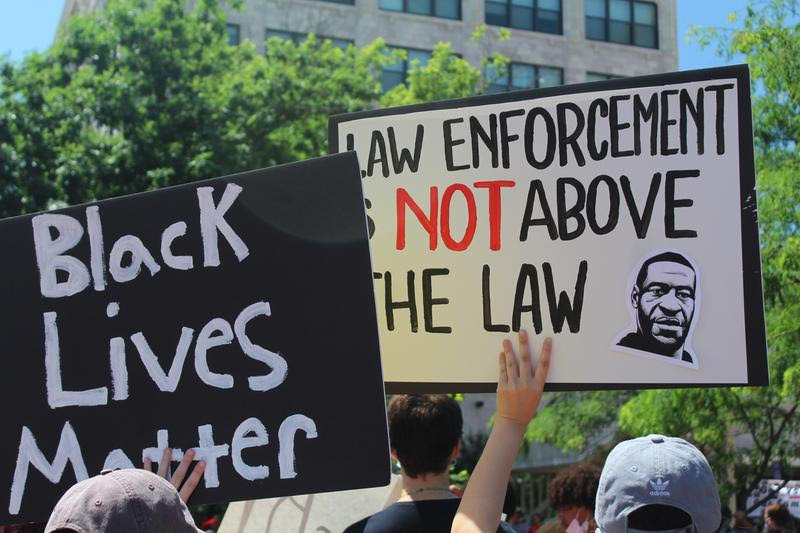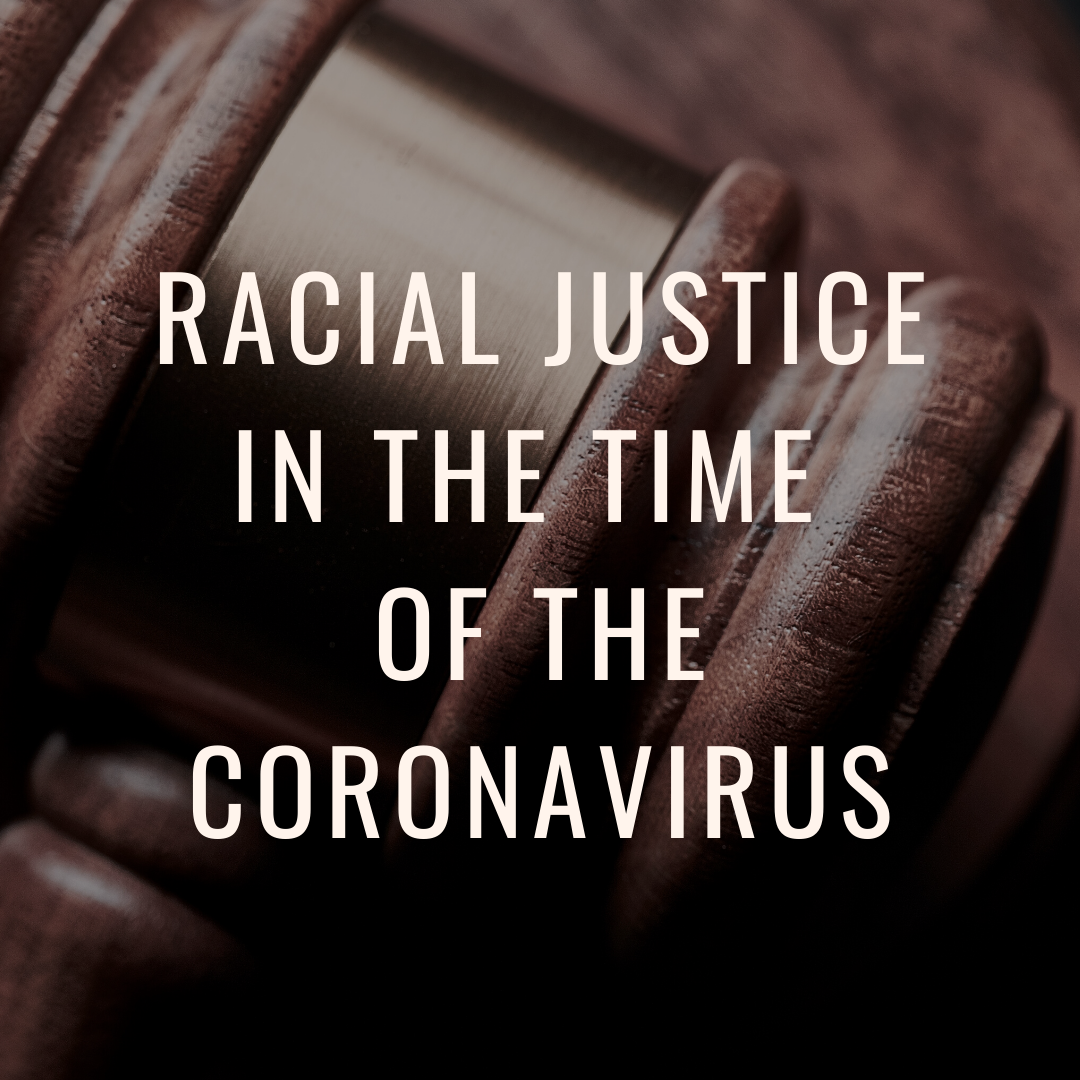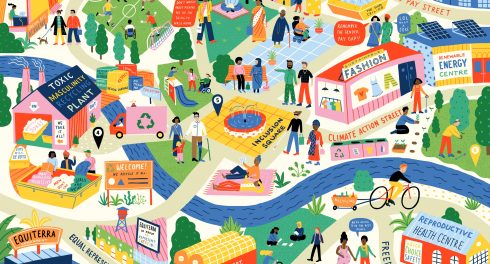Highlight
- Not above the law
- Report at your own risk
- Funding to follow?
- From one crisis and inequity to another…
- Frontline fundamentals
- TAI Spotlight: Collaboration – Easy to talk to, Harder to do, Always a source of learning
This edition of TAI Weekly is targeted more to the issues of racial justice and accountability for law enforcement that have resonated in the United States and far beyond this past week, as well as the continued pandemic backdrop. Coverage of other transparency, participation and accountability developments will pick up again next week.

Photo Credit: KSMU Radio
Amid the highly charged protests on streets across the United States this past week, racism is rightly front and center, but issues of governance and failings in transparency and accountability on multiple levels are not far beneath the surface. Against that backdrop historian Laura Edwards offers a timely reminder that constitutions back up protestors rights to oversee police powers: “Our uniformed police forces are responsible to the people, and the people can hold them accountable. In fact, our police forces are only as good as the people who give them authority.”
That does not mean that holding to account is easy in practice, but perseverance can pay off. Ted Alcorn details the police shooting of Jocques Clemmons in Nashville in 2017 and the two-year campaign by his mother and supporting activists that followed, finally resulting in citizen oversight of the whole city policy department. It is a model that others will hopefully follow without so many obstacles. To help kick start such efforts, Andrew Ford details five ways everyone can start holding police departments accountable.
On the legislative front, US Democrats have been quick to propose a new law that would seek to provide greater oversight and transparency of police behavior, including granting subpoena power to the Justice Department to conduct “pattern and practice” investigations of potential misconduct and creating a National Police Misconduct Registry to try to prevent officers from transferring from one department to another with past misconduct undetected.
It’s been fascinating to see how quickly the debate in the US has shifted to the tool of city budgets as a way to tackle police accountability. The calls to defund police departments are bringing together the racial justice advocates with those who have long championed public participation and oversight of budgets. Take the example of Houston, home town of George Floyd, where locals are already mobilizing to oppose an increase in the police department budget. We look forward to tracking how transparency and accountability related groups can harness their skills, data and networks to further support those fighting for racial justice.
One notable thread of the past week has been the solidarity protests sparked around the world. Are we seeing signs of a truly international movement to condemn racism? Certainly, George Floyd’s case has struck a chord in very different contexts from Kenya, where there have been long standing concerns over police accountability, to Brazil as detailed by Thiago Amapro.
Report at your own risk
Akindare Okunola discusses how online protests have become a tool for Nigerians in demanding accountability from their leaders, not least on police brutality. Akindare helps remind us how social media platforms matter and why their independence and integrity is worth fighting for to empower people and communities. Ashley Boyd argues that while “balancing free speech and fact-based discourse is tricky, no one person, not even the president, should have a personal opinion on how we strike that balance (rather) it’s something we need to sort through deliberately and collectively over time, with the public’s interest our ultimate goal.”
The wave of protest has also highlighted the dangers that journalists face in covering events, particularly if they are black. Listen to three journalists discuss the realities of trying to report while caught in the crossfire (or deliberately targeted – prompting the American Civil Liberties Union to sue). No surprise that leading press organizations want law enforcement to “halt the deliberate and devastating targeting of journalists in the field.” Again, a reminder of long-standing attacks and persecutions on journalists around the world.
Essential Listening: The Changing Global Media Landscape (Part I)
Jamie Fly of Radio Free Europe/Radio Liberty speaks to the pressures facing independent media outlets in the context of COVID-19 and more generally, the spread of illiberal democracy.
Funding to follow?

Photo credit: by Scott Heins/Getty Images
So, what to do? Not all funder voices have been silent. Ford Foundation’s Darren Walker says it’s time to throw away the old playbook of corporate window-dressing and start acting on racial equity principles and practices that works. (Looking globally, Ford Foundation announced $50 million for a network of social justice fellows – see the TAI Spotlight below). Grantmakers for Effective Organizations’ Marcus Walton details a philanthropic strategy that can advance racial equity through collective action. Sharon Bush argues its past time that racial equity is more than philanthropy’s catchphrase.
Those that have long stood for social justice may persuade others to bring their resources to the table. Expect more funder conversations on how best to fund social movements. Meantime, attention has already unleashed $450m in corporate donations to leading US civil rights groups.
What about those of us who aren’t directly grant givers? Blessing Omakwu urges all of us in the international development sector to become “intravists” – starting with developing and advocating for internal policies that ensure our organizations walk our talk more about power and our privilege, and reflect values in how we pay as organizations. Time to follow through.
Given the scramble for funding for pandemic responses, there may be tough funder choices to follow. In terms of supporting COVID-19 efforts, the European Union is considering funding COVID19 relief through taxation, while the GivingTuesday organization announced it was able to raise a total of more than $503 million in support of efforts to address the unprecedented level of need created by the pandemic.
From one crisis and inequity to another…
In several countries people of color are at a higher risk of death due to COVID-19, reflective of unequal healthcare access and treatment. In addition to furthering racial divides, the coronavirus pandemic may also exacerbate gender inequalities as many public and private services move online, including health and education. Mayra Buvinic notes that while the Coronavirus pandemic affects women differently, there is no internationally comparable data to track gendered implication of the virus. Perhaps a silver lining that the pandemic is forcing countries to get a better handle on their data management; Masako Hiraga and Maria Gabriela Tercero Gomez at the World Bank outline how countries can maintain their statistical capacity gains during COVID-19.
What about inequities in access to reliable internet amid continued lockdowns? Good to see Alliance for Affordable Internet set an ambitious target for meaningful Connectivity to raise the bar for internet access.
Frontline fundamentals

Photo Credit: Glenn MUMC
Returning to healthcare, explore the connection between health worker voices and accountability of health systems and health rights in the latest project write up of the Accountability Research Center. Tracking health worker protests across 20 countries helps us understand the need for substantial improvements in their working conditions. Meanwhile, Francis Valentine Garikayi examines how external funders and western models have negatively impacted the African healthcare system with a resounding rebuke that “a few billionaires cannot continue to speak on behalf of millions of Africans.”
This pandemic has shown just how important it is to wash your hands, and likewise, water sector accountability. Water Integrity Network note that “one in three people does not have access to safe drinking water and nearly half of the population does not have access to decent sanitation, at least in part due to corruption and mismanagement in the sector.” A coalition of players suggest ways to maintain transparency, accountability and inclusion in addressing their need that resonates for broader pandemic responses, including developing responses with affected communities, ensuring emergency procurement is done through open processes and finding ways to stymie the emergence of new water cartels.
The water sector recommendations will likely resonate with Jason Lakin and Guillermo Herrera, who detail examples of civil society mobilizing around the world to demand transparent and just responses to COVID-19, starting with monitoring of pandemic relief funds. On that, they may receive some help from multilateral institutions. Interesting to see the African Development Bank institute fiduciary measures to monitor transparency and accountability of COVID-19 funds for Nigeria, working with the Office of the Auditor-General.
Finally, to add to your list of COVID-19 impact-related trackers, the Westminster Foundation for Democracy has launched a Pandemic Democracy Tracker. It monitors and measures the quality of executive and parliamentary response in 30+ countries to COVID-19 and the impact of the virus on democracy.
TAI Spotlight: Collaboration – Easy to talk to, Harder to do, Always a source of learning
Collaboration – Easy to talk to, harder to do, always a source of learning | Transparency and Accountability Initiative (TAI)
TAI is a donor collaborative, but what does that entail in practice? Michael Jarvis, TAI Executive Director introduces out latest set of collaboration case notes designed to help explain. Over the course of this month we will be publishing six new cases featuring collaborative efforts that range from mobilizing funder discussion on whether and how to support civil society engagement on revenue mobilization, to mapping and testing use of extractive industries royalty payment data in Colombia. Read the first two on extractives revenue data use and tax and civil society organizations.
Meet the Ford Global Fellows | Ford Foundation
Ford Foundation welcomes the inaugural class of the Ford Global fellowship, an initiative that aims to connect and support the next generation of social justice leaders who are advancing innovative solutions to end inequality. The Foundation will invest $50-million in the program over the next 10 years to create a powerful network of 240 fellows from across the globe, covering a multitude of our most pressing issues.
Reimagining the economy after Coronavirus | Luminate
Luminate’s Advisory Group member, Mariana Mazzucato calls for a more inclusive, sustainable economy after COVID on CNN. “There’s no thinking. Let’s just do it. We don’t have a choice,” she says.
Releasing the hounds with Bobby Chesney | Hewlett Foundation
Hewlett’s Cyber Initiative grantee and co-founder of the Lawfare blog, Bobby Chesney talks cybercrime law enforcement and use of offensive national security assets in cybercrime with Mieke Eoyang.
Transcendent empowerment | MacArthur Foundation
Steward of the MacArthur Fellows and 100&Change programs, Cecilia Conrad joins Ryan McGranaghan Origins podcast on embracing and transcending radical change. She offers guidance about how to think about empowerment to bring change to our own lives and to connect us with change in the world.
The world can learn from Georgia’s experience with COVID-19 | The Open Society Foundations
How has Georgia managed to handle the pandemic with relative success, despite its limited means and economic instability? Open Society Georgia Foundation Executive Director, Keti Khutsishvili highlights how prompt action by the government, a strong response from civil society, and the public’s willingness to make necessary sacrifices have helped curb the spread.
- Job Listings
- Job postings at Ford Foundation – Ongoing
Job postings at Luminate – Ongoing
Job postings at Democracy fund – Ongoing - Government Affairs Senior Policy Advisor, International Financial Institutions at Oxfam – Ongoing
- Reset. Information control fellowship – July 1, 2020
- Reset. Resident fellowship – July 1, 2020
Calls/Opportunities
- BetterTogether Challenge for innovators – Ongoing
- Free Digital Security Training – Ongoing
- Open Road Alliance Charitable Grant and Loan to organizations responding directly to COVID-19 – Ongoing
- Call for submissions to SSIR Series: Social change in an era of extreme polarization – Last Thursday of every month until early 2021
- Pulitzer Center Coronavirus news collaboration challenge – Applications will be reviewed on a first-come, rolling basis
- Call for proposals: Informality, tax, and the state – Proposals accepted on a rolling basis
- Change Leaders in Philanthropy Fellowship – (application opens on June 2020)
- Proposal submission for the 2020 Summer Evaluation Institute – June 7-10, 2020
- Marielle Franco Award for feminist essays 2020 – June 16, 2020
- Open call for grants funding on social accountability and transparency in the national education sector – June 19, 2020
- Call for papers: Are emergency measures in response to COVID-19 a threat to democracy? – June 30, 2020
- Proposal: Working together to improve governance and anticorruption (Central and Eastern Europe focused) – June 30, 2020
- Reset our future fund for organizations and people using technology, research, and education that help tackle these challenges – July 1, 2020
- IBM call for Code Covid-19 Global Challenge – July 31, 2020
Amartya Sen essay contest 2020: Illicit financial flows – August 31, 2020
Calendar
Please double-check the websites for these events to make sure they are still happening – many are subject to change due to the spread of coronavirus.
Transparency International: 19th International Anti-Corruption Conference – (Postponed)
Human Rights Litigation Summer School at Berlin, Germany – June 8-12, 2020
The future of finance and banking systems in Africa beyond Covid-19 — June 9, 2020 (14:00-15:30 BST)
Women and Girls Africa Summit – June 9-12, 2020 (Durban, South Africa)
RightsCon 2020 – June 9-12, 2020 (San Jose, Costa Rica)
COVID-19 in the Global South: Economic Impacts and Recovery— June 10, 2020 (9-10:15am PST)
(Webinar) Le Machines: How Disinformation Threatens Democracy and How to Save It – Jun 10, 2020 11:00 AM in Eastern Time (US and Canada)
How foundations are shaping policy during COVID-19 – June 11, 2020 (2:00pm to 3:00pm ET)
2020 Neighborhood Funders Group National Convening (philanthropy support to grassroots power building) – June 29 – July 1, 2020 (Washington, DC)
WE EMpower UN SDG Challenge 2020 – September 18 – 27, 2020 (New York City, United States of America)
The 2020 Journalism Funders Gathering (funder-only gathering) – October 6-7, 2020 (Philadelphia, United States of America)
Humanitarian and Development Data Forum – November 2-4, 2020 (Chambery, France)
International Open Data Conference –November 18-20, 2020 (Nairobi, Kenya).


